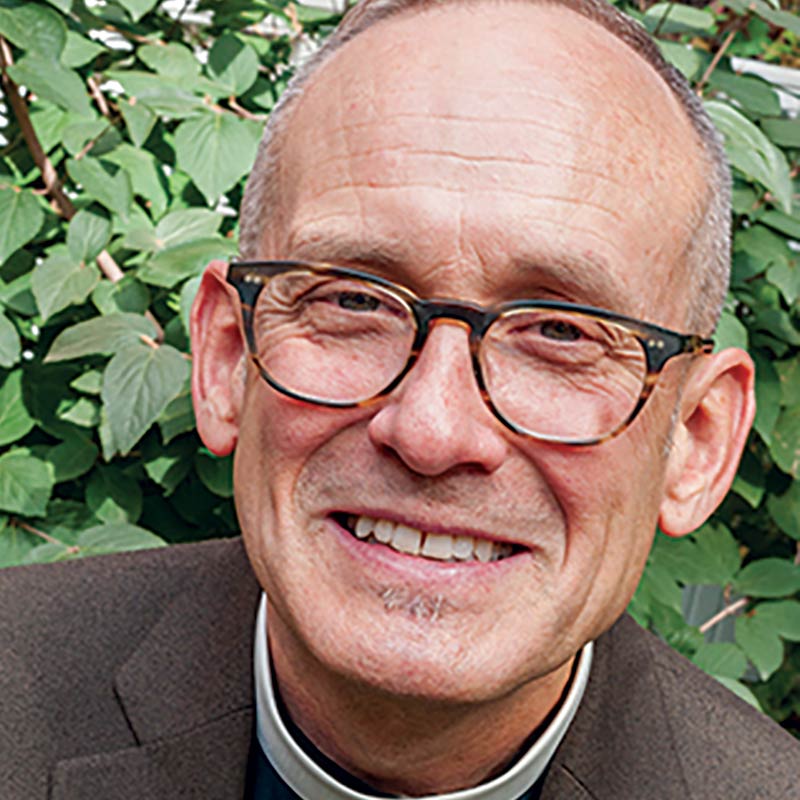Craig Mueller: Leading Spiritual Formation

Craig Mueller, an experienced pastor, spiritual director, and auxiliary faculty member at LSTC, is bringing his parish ministry experience and passion for spiritual formation to Project Starling. With over three decades of experience in ministry, Craig is known for his ability to connect spirituality, preaching, and worship with everyday life. As part of Project Starling, Craig is developing a course focused on spiritual formation. This course is designed to equip church leaders, students, and laity with the tools and practices needed to enrich their ministries and their spiritual lives.
In this article, the Rev. Dr. Craig Mueller shares his vision for the course, the inspiration behind it, and how it fits within the broader mission of Project Starling.
Tell us a bit about the course you’re designing for the Project Starling Platform.
The course I’m developing focuses on broad themes in spirituality such as prayer, discernment, liberation, wellness, embodiment, and nature. Each module also includes a spiritual practice such as journaling, lectio divina, centering prayer, the Enneagram, and spiritual direction. The course will be designed for those in ministry programs in an asynchronous format, and for lifelong learners to engage the material for their own spiritual enrichment. The required spiritual formation course for master’s students at LSTC has been well received, and I am eager to curate the various modules for a wider audience.
What inspired you to focus on spiritual formation?
I first began receiving spiritual direction in my 20s and since then I have had a spiritual director through all the seasons of my life. I was trained as a spiritual director in the 1990s and began offering spiritual formation offerings at LSTC in 2009. Spiritual formation is a wonderful complement to the public church emphasis at LSTC. I have also offered retreats, spirituality groups, and “samplers” of spiritual practices throughout my parish ministry as well. It is exciting to provide opportunities for people to deepen their spiritual journeys, both as individuals and within communities of faith.
Tell us a little about the structure of the course. What can learners expect?
The course is structured around a series of modules, each focusing on a different aspect of spirituality. Learners will engage with videos, readings, spiritual practices, and journal reflections. Several inventories assist learners to determine their unique spiritual path and to gauge their overall sense of wellness.
What are some of the key challenges you’ve faced while developing your module, and how have you worked to overcome them?
One of the most appreciated components of the synchronous spiritual formation course is the small group experience. Each week students process the readings and practices in a supportive community of five or six students. I have needed to consider other ways for learners to reflect and interact in an asynchronous course. I am grateful for the coaching and support provided by LSTC and Noodle, the organization helping LSTC design online content.
What do you hope learners take away from this course?
Whether preparing for public ministry or taking the course for personal enrichment, I hope the course will be a journey of self-reflection for learners. By experiencing a wide diversity of spiritual practices, each learner will determine which are a good fit for them and which ones nurture their body, mind, and soul. In addition, there is a strong emphasis on practices that honor the earth and bring liberation and healing to the world.
What excites you most about contributing to Project Starling?
As an alum of LSTC I have a long connection with seminary. I am excited about the opportunity and challenge of providing theological education for the next generation of learners including those taking courses as lifelong learners. Though there are technological challenges, I am most excited about the element of creativity in this endeavor. There are also initial conversations about LSTC providing a spiritual direction training program in the coming years. The modules we are designing now will be core content for such a program that will draw on LSTC’s unique emphasis on justice and inclusivity and its ecumenical, interfaith context.